Police brutality is not unique to Nigeria. Rather, it is a global problem that affects even the most advanced countries. The scourge, however, intensifies on the African continent for several reasons, ranging from poor levels of transparency and accountability deficits.
Police brutality is one of the long-staying problems of Nigeria. It doesn’t seem to have been solved even after the series of intense protests that rocked the country a year ago. On the contrary, it has thrown up pertinent questions that remain unanswered.
The EndSARS protest of last year
Exactly a year ago, Nigerian youths took to the streets to protest the ills and brutality of men of the Nigerian police force.
These agitations were initially intended to address the abusive nature of the Special Anti-Robbery Squad (SARS). The police unit has been notorious for all forms of highhandedness ranging from extortion, harassment, torture, and even murder.
But eventually, the protests became a demand for the full reform of the entire police force. This was after a video of a man allegedly killed by the infamous SARS unit surfaced online.
Making matters much worse, the security forces responded to these protests with a more aggressive show of force, which made it obvious that the police department truly needed to be reformed.
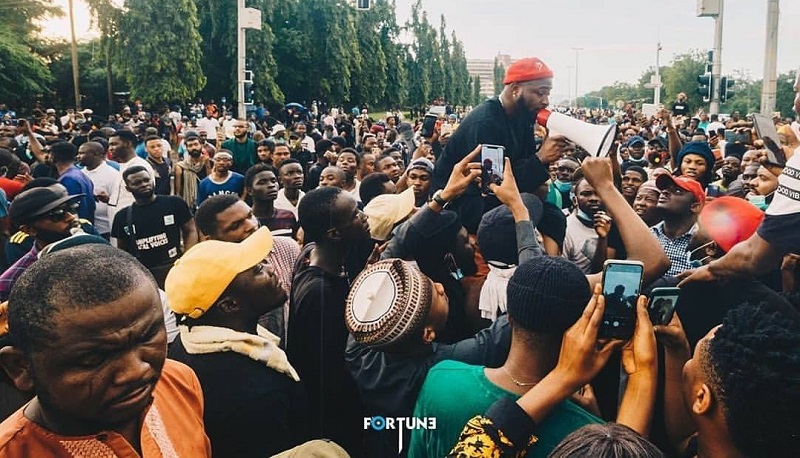

Over the course of the protests, there were incessant calls for the scrapping of the notorious SARS unit. Eventually, the inspector-general of police (IGP), Mohammed Adamu eventually succumbed to the demands and announced the disbandment of the SARS unit.
This announcement, however, didn’t lead to the protest getting called off as the protesters remained adamant on remaining on the streets except they were able to reach an agreement with the government, particularly with regards to their five demands.
The Five for Five Demands
The protesters made five demands:
- Immediate release of all detained protesters
- Justice for all deceased victims
- Investigation and prosecution of all reports of police misconduct (within 10 days)
- Psychological evaluation and retention of all disbanded SARS officers before they can be redeployed
- An increase in police salary.
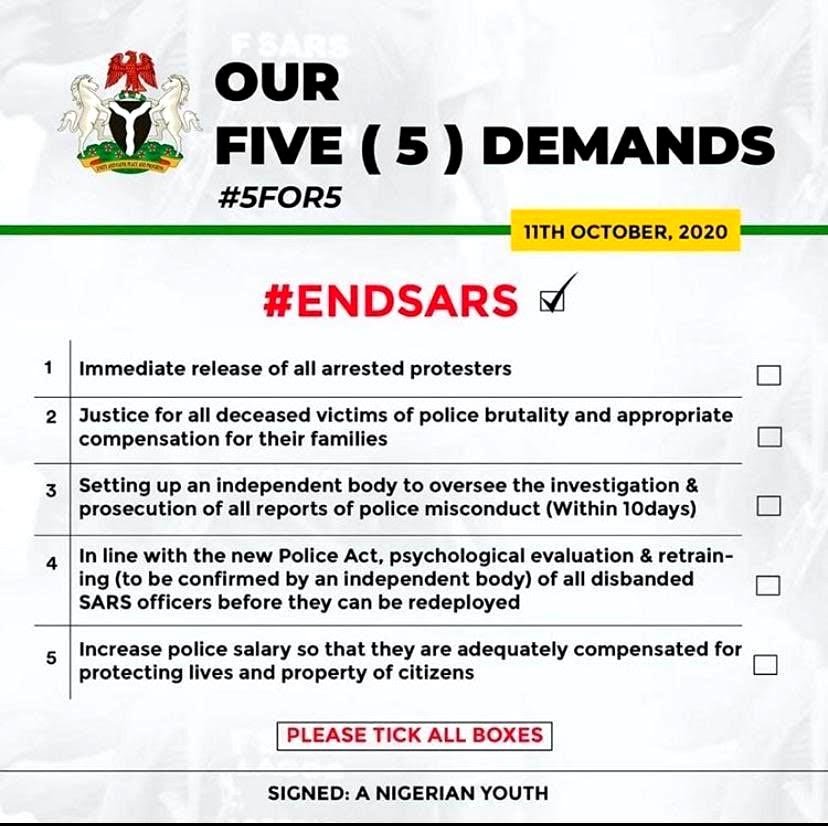

The protesters abruptly left the streets after the unfortunate incident of Friday, October 20th at the Lekki toll plaza, but after a year of this 3-weeks long ordeal, empty burnt-down buildings, looted stores, and dead protesters are all standing evidence of the struggles.
Our focus here is to answer the question: have the demands been fulfilled?
Release of arrested protesters
While Nigerians in general and the nation’s security agencies can not forget in a hurry the violent twist that characterised the EndSARS events of last year, normalcy is yet to be restored and not all arrested protesters have fully returned to their families.
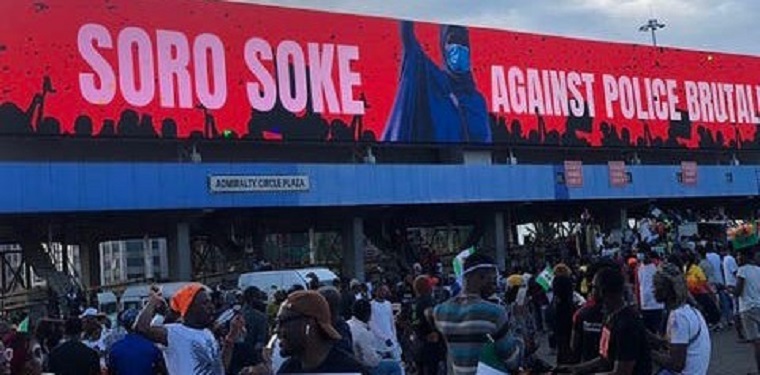

According to reports from the Guardian Newspaper, over 300 EndSARS protesters still remain in police detention in Lagos alone, even despite the continuous call for their release.
According to the police, the detainees were responsible for the unfortunate destruction of properties that saw over 250 police stations razed, with Lagos having recorded the highest number.
Civil right activists like Banwo Olagokun has said these protesters should have been released unconditionally but many are even in the Kirikiri maximum prison even without a trial.
Among those still in custody are Kpanou Robert, Seyi Awobola, and Sunday Okoro with many others slowly getting forgotten. They are charged with various crimes like armed robbery, arson and rioting.
Justice for all victims
During its proceedings (that came to an end on Monday) the Lagos State Judicial Panel of Inquiry says it has awarded N148.2 million as compensation to 23 victims of police brutality.
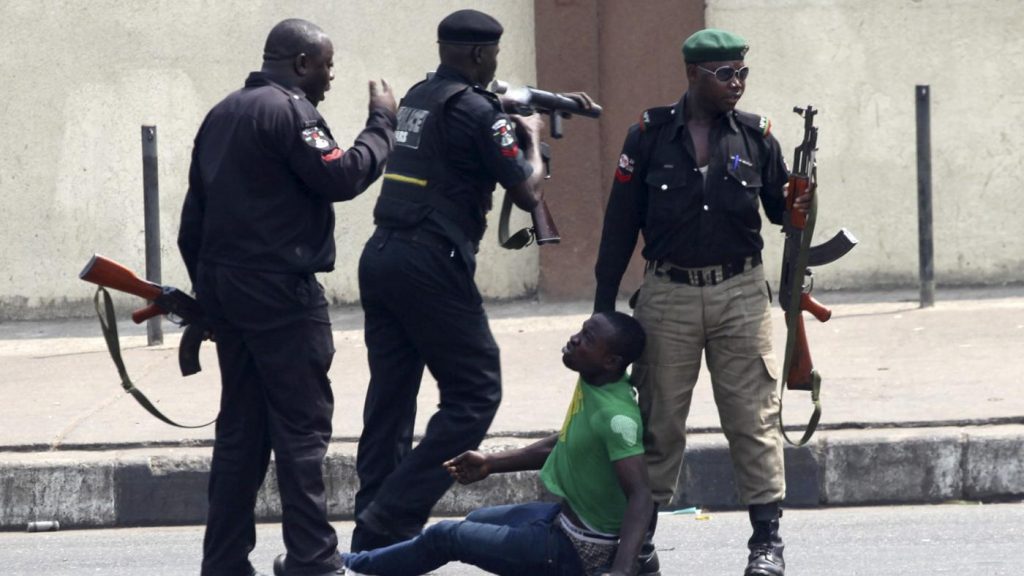

This is in addition to about N262 million it had previously paid as compensation to 47 petitioners. That brings the total sum awarded by the Lagos panel as compensation to N410.2M million (meant for 70 petitioners).
We are told that victims have been compensated from an N200 million Fund approved by the Lagos State government. In fact, Vanguard reports that the state has been funding compensation awards made by the panel after the N200million was exhausted.
Of the 29 state judicial panels created, 10 states recommended over N25bn as compensations to be paid to victims of police brutality.
Bayelsa will be paying the highest compensation after the panel recommended compensations to the tune of N21 billion. Rivers comes next with N1 billion. Imo state follows with N770.9 million.
Ondo state will be doling out N755 million, Abia state has N511 million, Lagos will be paying a total of N410 million. Ogun state will be set back some N218 million, Plateau N152 million while Ekiti is paying N20.8million.
While the awards and payments are commendable, are they really enough justice to the sufferings of Nigerians?
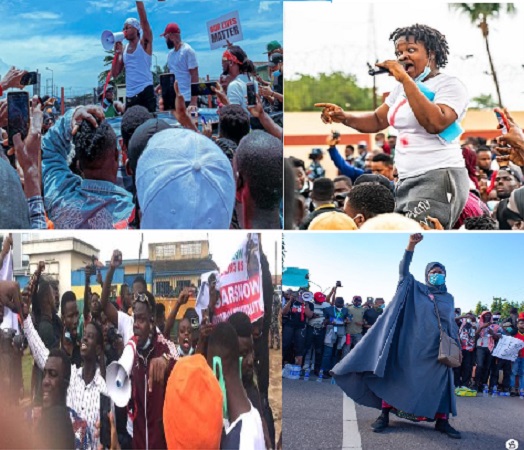

Furthermore, Amnesty International reports that at least 56 people died across the country during the EndSARS protest with about 38 killed on the night of the Lekki shooting alone. These victims include protesters and maybe thugs who had allegedly tried to disrupt the protest.
While the Nigerian Army has denied opening fire on thousands of peaceful protesters, it bluntly refused invitations for cross-examination in the face of the evidence presented by eyewitnesses and petitioners.
This denial had prevented Justice from being served to the shooters, even after a year. So, justice has not been served to ALL victims.
A bit about the independent Panels of inquiry
Weeks into the EndSARS protest from last year, The National Economic Council (NEC) announced that it had directed states to establish judicial panels to investigate complaints against forms of police brutality.
That was in line with the demands from the EndSARS protesters at that time. But after a year Nigerians still awaits full reports from all the panels.
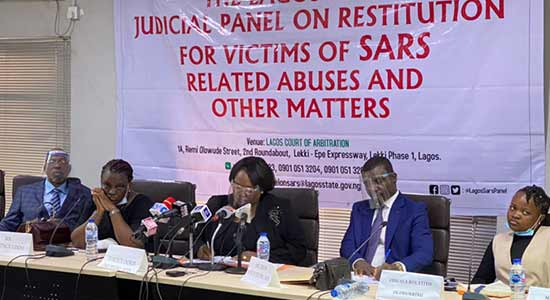

29 states plus FCT have set up judicial panels of inquiry. They include Abia, Adamawa, Anambra, Akwa Ibom, Benue, Cross River and Enugu Kaduna and Katsina.
Others are Kogi, Kwara, Ekiti, Osun, Ogun, Lagos, Ondo, Oyo, Edo, Delta, Bayelsa, Bauchi, Gombe, Plateau, Nasarawa, Ebonyi, Rivers, Taraba and the Federal Capital Territory (FCT).
States that haven’t set up judicial panels include Borno, Jigawa, Kano, Kebbi, Sokoto, Yobe and Zamfara.
Anambra has the highest number of petitions with 311 petitions filed before the judicial panel sitting in Awka. Lagos has the next highest with 235 complaints while the FCT judicial panel has 200 petitions.
170 petitions were received by the Edo state judicial panel, Oyo treated 163, Akwa Ibom had 150, Enugu addressed 147 petitioners, Imo had 145 and Ogun had 106. Katsina judicial panel listened to 101 complaints, Delta and Abia saw 86 each, Ekiti had 85, Ondo had 77, Ebonyi witnessed 73, 50 in Bayelsa, Osun had 34, Bauchi had 32 while Niger had the least with 17.
In June, the NEC had announced that it would convene a special session for the implementation of the reports by the judicial panels established by the states. This may be a closure to the process but it is far from complete.
The question of police reform
Barely one month before the EndSARS protests of last year, President Muhammad Buhari signed into law the Police Act 2020, which provides a framework to kick-start genuine and far-reaching police reforms.
The Police Reform Act elaborates on how police officers should exercise their powers and gives provisions for due process of the law.
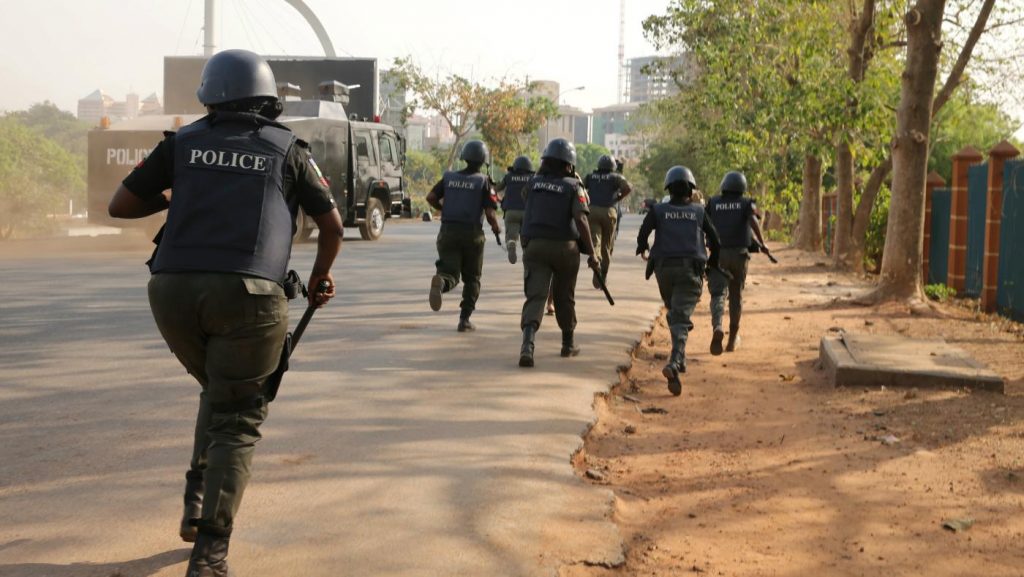

Despite the standing law, police abuses remain rampant and the officers of the Nigerian police force still engage in the same acts that led to the initial protests.
In the heat of the protest, the former Inspector General of Police, Mohammed Abubakar Adamu, announced the disbandment of SARS and a subsequent formation of a SWAT unit days after. According to reports, operatives of this new police unit have already been deployed across the country.
The Minister of Police Affairs, Mohammad Dingyadi, says this unit will replace the SARS unit and tackle the security challenges in the land.
It is, however, unclear what criteria were used in selecting the 1,850 inaugural operatives of the new unit. It is very likely that the former SARS operatives have simply been christened with a new name to continue in their nefarious acts.
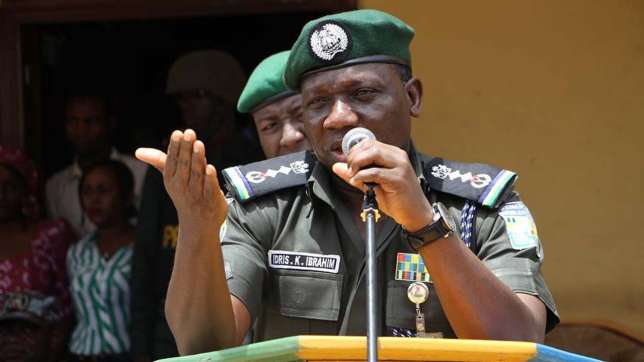

Furthermore, various Nigerians, from individuals and civic organisations have been calling for members of the police force to undergo a mental and psychological evaluation. On October 16, the National Economic Council eventually acquiesced and recommended mental evaluation for new recruits into arms-bearing security agencies.
“Persons recruited into arms-bearing security agencies (should) undergo psychiatric evaluations and drug tests before enlistment, and periodically after enlistment to ensure that the personnel are psychologically fit to carry live weapons and to identify behavioural tendencies that may require psycho-social interventions,” the NEC said.
It remains to be seen if this recommendation will be implemented for a start.
The welfare of the Nigerian Police officers
During the EndSARS protest from last year, Nigerian president, Muhammadu Buhari, while calling an end to the protest had assured the protesting youth that their voices and demand are heard loud and clear.
One of the demands of the EndSARS protesters is that salaries of Nigerian police officers be upwardly reviewed so as to enable them better protect Nigerians. Yet nothing seems to have been done even a year after.
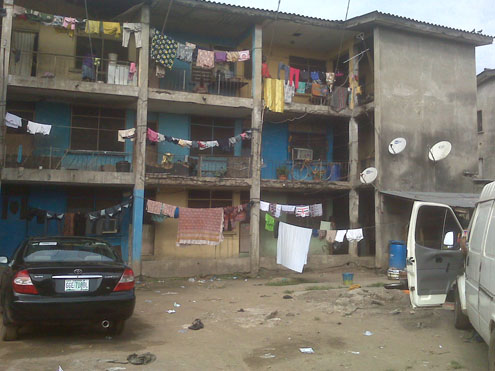

Officers of the Nigerian police risk their lives every day to protect citizens, yet they live in extremely poor living conditions. Their barracks are as far away from modest as possible.
The pay a Nigerian police officer gets is determined by his or her rank and grade in the Nigerian police force as specified in the Consolidated Police Salary Structure (CONPOSS).
This salary structure was last reviewed in 2019 and it puts officers’ salaries at as low as N9,000 for new police recruits. The average police sergeant gets between N48,000 and N56,000, depending on the grade level.
For emphasis, to live a modest life as an individual in a state like Lagos, one has to be earning upwards of N200,000.
The average policeman has to survive with this meagre pay usually with large families comprising of dependents. Opinion holders believe that with better pay, the police would not only attract some of the best heads in the country, it would also reduce the propensity for highhandedness and extortion.
It is instructive to note that after a year, there has been no significant improvement in the welfare of officers of the Nigerian police.
Conclusion
Largely, the struggles of the EndSARS movement seem to have yielded some results especially with the 5 for 5 demands. But the results aren’t as impressive as Nigerians have expected.
The struggles led to global recognition of the ill-fated structure of the Nigerian policing system but away from that, we are more likely at the point we began. Police impunity and abuse of power still continue, with many describing it as worse than where we actually began.
Many fear the judicial panel set up will more than likely look like previous panels set before it. It is either been upturned by the Nigerian government, or they react really slowly in their decision-making process thereby frustrating the efforts.






